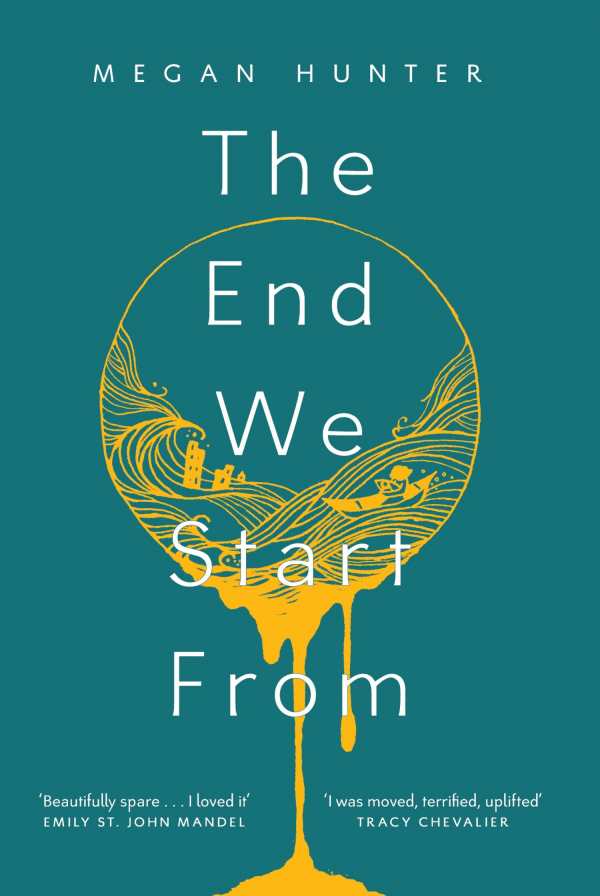
The End We Start From
- 2017 INDIES Winner
- Editor's Choice Prize Fiction
In Hunter’s poetic post-apocalyptic novel, meditations on what has been lost are heartrending in their clarity.
Poetic and succinct, Megan Hunter’s The End We Start From is an etiological exercise for a climate-changed world—a post-apocalyptic novel in which current human mistakes are followed forward to dismaying ends.
An expectant mother initiates the narration, planning a beautiful entrance for her child with R—there is no emotional budget for full names at the end of everything—despite rising tides and the imminent possibility that they will have to flee their new couple’s nest. Nothing is as simple as a calm water birth, though, particularly in a time when the sea is swallowing the land. Z is born into increasing chaos; his family is ripped slowly away, until only he and his mother remain together, vulnerable and ill-equipped to forge a future through a terrifyingly different landscape.
The power of Hunter’s story is both in its stark prose, which undulates and captures searing images as poems might otherwise do, and in the connection of its future to the past. Italicized bits of origin tales accompany forays into the unknown, and meditations on what has been lost are heartrending in their clarity and familiarity.
The narrator longs for R bodily when he disappears; her related memories to other “milk drippers” are as much of “how delicious his mouth was to me, like sweets” as they are of the tenuous life that the couple forged. Sharp memories become breaking points—and from them, marks from which to start out toward new places. Settings, from remote houses to islands to refugee camps, are rendered with precision, and prove to be a mixture of alien and familiar. Though the story is marked by incredible loss, the hope beyond the devastation is worth holding on for.
Hunter’s is an uncommon disaster tale—lovely, intimate, and foreboding.
Reviewed by
Michelle Anne Schingler
Disclosure: This article is not an endorsement, but a review. The publisher of this book provided free copies of the book to have their book reviewed by a professional reviewer. No fee was paid by the publisher for this review. Foreword Reviews only recommends books that we love. Foreword Magazine, Inc. is disclosing this in accordance with the Federal Trade Commission’s 16 CFR, Part 255.
